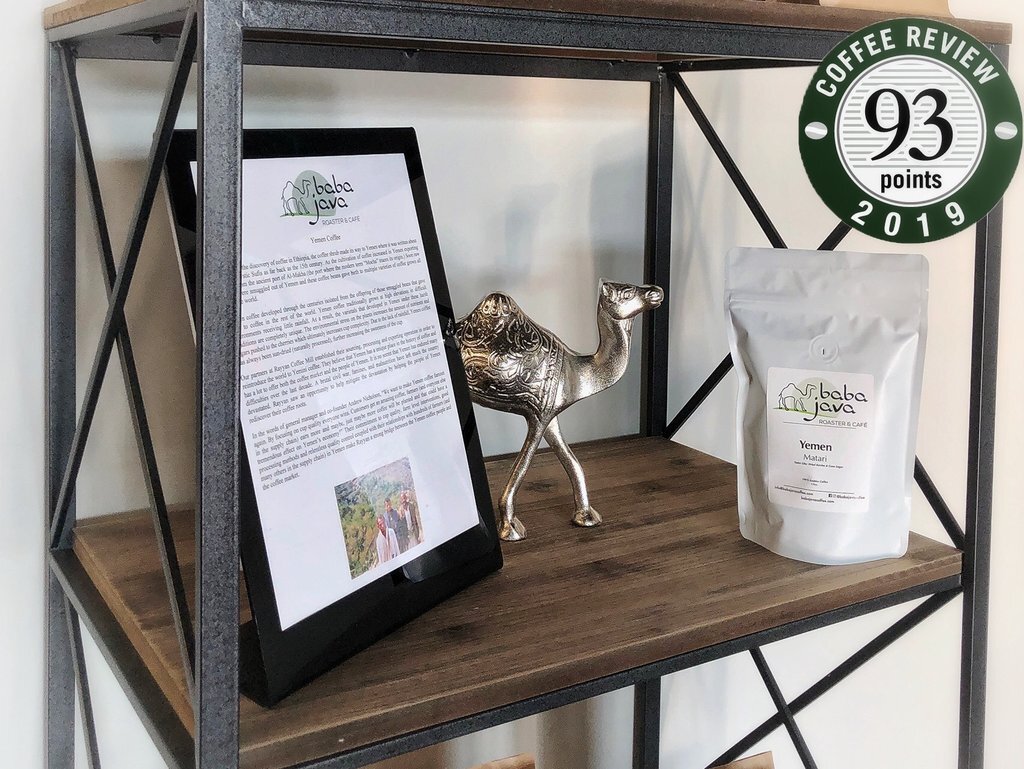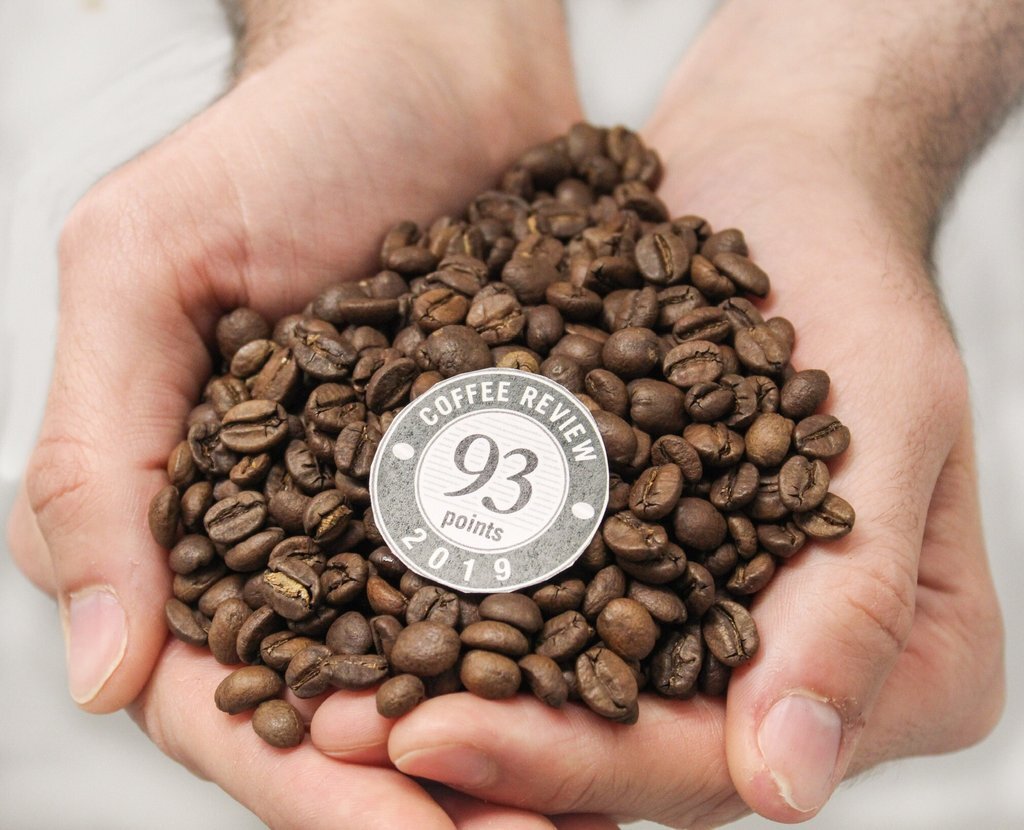
Roasted and Reviewed: Yemen Matari
Friends of Baba Java know that we are proud to roast and carry our Yemen coffee. We are pleased to have it for many reasons: all that it does to help farmers and communities in war-torn Yemen, the fact that it is difficult to get in the first place, and the unmatched quality one can taste in the cup. This last reason, especially, is why we decided to send a bag to coffeereview.com to try. It seems that we are not the only ones who like it, as it scored a whopping 93 in a blind taste test. Not bad at all!

It goes without saying that we are enthusiastic about our Yemen, but Yemen coffee holds not only a special place in our hearts, but a special place in coffee history as well. As unique and delicious as it is, Yemen coffee is unfortunately, also increasingly difficult to come by. That is why we appreciate our partners at Rayyan Coffee Mill in Sana’a for their efforts to increase both the availability and quality of this historically delicious coffee varietal.
Baba Java is fortunate enough to carry two of Rayyan’s best Yemen coffees-one from the Al Ghayoul region and one from Bani Matar. The second variety is what we are roasting currently. In Arabic, Bani Matar means “son of the rain,” which is both ironic and slightly misleading. This region is quite rainy by desert standards, as the Matari region receives less than one foot of rainfall per year. How does coffee even grow under such harsh conditions? And how is that coffee not just drinkable, but actually some of the world’s best? The answer lies within the coffee bean itself.
Coffee Flavor: The Farm and the Wash
To begin answering these questions, it helps to know that coffee is not even technically a bean at all, but the seed of the coffee fruit. Coffee cherries actually form and ripen right on the branch of the coffee tree before being harvested and having the fruit stripped away at processing.
Anyone who has dabbled in growing fruit of any kind knows that when a fruit is grown in harsh conditions and struggles, it tastes better. When a plant senses that growing conditions are less than ideal, it invests all its nutrients into the next generation-the fruit and seed. That’s why all of the best Alabama tomatoes grow on vines that appear to be shriveling; and that’s why some of the world’s best coffee grows atop desert mountain ridges in Yemen.

As coffee experts know, the way a coffee is processed also greatly affects the taste of the coffee. The natural process that Baba Java’s Yemen coffee undergoes makes for a spectacular cup. By ‘processing’ we mean the technique used to get the seed out of the ripe coffee cherry and dried for shipping. Instead of removing the fruit immediately after harvest and washing the beans (as happens in washed processing), the fruit is left in tact to dry in the sun. This method actually dates back thousands of years and promotes more mingling between the fruit and the beans themselves. This gives the beans ample opportunity to soak up as much flavor as possible while the fruit dries either on rooftops or raised beds built for this purpose.
Once the fruit dries, it is removed at Rayyan Coffee Mill, packaged, and shipped to roasters like us. All that’s left to do is fight its way through a civil war, avoid literal pirates, and find its way to port in Houston, Texas before being dropped off in Birmingham, Alabama.
Once that arduous journey is complete, it awaits roasting by us and consumption by you. We are happy to play our small role in roasting and brewing our Yemen coffee to bring out the best in it. If you’re local, we hope that you will come by to try a cup and get a bag for yourself. If not, we hope that you can order a bag online and see what all the buzz is about! And if you like it enough, you can even become a Baba Java Coffee Insider and make Yemen your subscription so that you never have to go another day without it.
